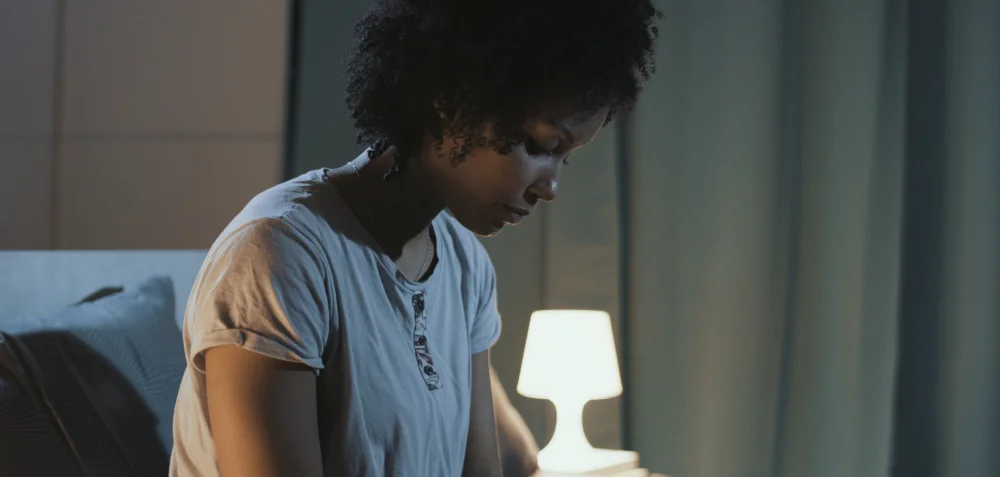
In a country where conversations about money tend to happen in hushed tones or not at all, the glow of a mobile screen at midnight tells a louder story. It’s a quiet theatre of hope and risk, where a bet is placed with one thumb and a prayer with the other. In South Africa, where economic pressure simmers behind every grocery bill and social feed, the act of gambling, especially online, is no longer just about games. It’s about identity. About control. About secrecy. And about the duality that defines modern betting, private wins lit by screenlight, public losses carried in silence.
Walk through any café and you’ll find it. A suited man staring too long at his phone between sips of single origin espresso. A sportswear-clad teen at a fast food table, refreshing a cricket score with a twitchy finger. A mother sitting outside a pharmacy, loading a betting slip while a toddler sleeps in her lap. These aren’t anomalies. They’re the norm in a country where betting apps have slipped quietly into the rituals of daily life, part background noise, part lifeline, part confession booth.
The screen is intimate. It hides the shake in your hand when you’ve doubled down. It shields you from judgment when you’re on your tenth deposit of the week. There’s no bookie looking you in the eye. No casino floor to walk across. Just pixels and possibilities. And that’s the seduction. It feels like control. But the cost, when it comes, is paid in silence. Because when the loss hits, it doesn’t echo off walls or stir pit bosses. It just sits there, still glowing, while you figure out how to cover the debit order you forgot about.
And yet, the win, oh, the win is holy. It feels secret and sacred, like you’ve hacked the system. You screenshot it. You don’t post it, not really. Maybe you’ll share it in a locked WhatsApp group with friends who also play. Maybe you’ll hint at it in a tweet. But for the most part, it stays private. Your win. Your moment. A pocket of victory in a country that often offers none. And that’s the strange paradox of modern betting, it gives people something to believe in without needing to share it.
But the losses stack differently. They bleed into the public quietly. Into unpaid bills. Into dodged calls. Into loan requests and late-night panic. And when they do get spoken about, it’s always secondhand. “My cousin lost everything.” “A friend of mine went too deep.” The stories come out like folklore. Safe to tell because they didn’t happen to you. Except, sometimes, they did. And it’s that anonymity, both liberating and crushing, that defines the screenlight era of South African betting.
 Add to this the pressures of digital life. Algorithms know when you’re desperate. Ads for bonuses and “second chances” follow you from your inbox to your Instagram. The line between entertainment and entrapment blurs fast. A single click feels harmless, until it’s not. The apps don’t judge. They welcome you back. Always. No matter how many times you left with less than you came in with. It’s a brutal kind of loyalty.
Add to this the pressures of digital life. Algorithms know when you’re desperate. Ads for bonuses and “second chances” follow you from your inbox to your Instagram. The line between entertainment and entrapment blurs fast. A single click feels harmless, until it’s not. The apps don’t judge. They welcome you back. Always. No matter how many times you left with less than you came in with. It’s a brutal kind of loyalty.
And yet, for all the critique, for all the data about addiction and ruin, there’s also a deeper, unspoken truth, for many, betting is one of the last spaces where they feel agency. A place where the outcome might be random, but at least it’s theirs. In a world shaped by inequality and inherited disadvantage, putting down R50 on a virtual slip feels more empowering than begging the bank for a loan they’ll never approve.
This isn’t to glorify the industry. But it’s to understand it. Betting, especially mobile betting, has filled a vacuum in the South African psyche. It has become a mirror for ambition, for frustration, for grit. In townships and upmarket suburbs alike, it has created new rituals. Midnight check-ins. Sunday multis. Monday regrets. And behind every deposit is a human story. Sometimes desperate. Sometimes defiant. Always complicated.
There’s no shame in the win. But there’s silence in the loss. And that’s where the damage accumulates, in the loneliness of it. Because the digital mask lets you hide until it’s too late. No one sees you spiral. No one sees you scrape. They only see you when you show up broke, or when you don’t show up at all.
Maybe that’s what needs to shift. Not just the odds or the terms and conditions, but the culture of secrecy. The ability to say, “I’m down bad” without being ridiculed. The freedom to play without pretending it’s not serious. To win out loud, yes. But also to lose with support.
For now, though, the glow continues. In taxis. In offices. In bedrooms after lights out. It is the confessional booth of a digital generation, where sins are placed as bets, and redemption is one lucky spin away.
Because in South Africa, hope is currency. And for many, that hope flickers brightest in the cold blue light of a betting screen.







